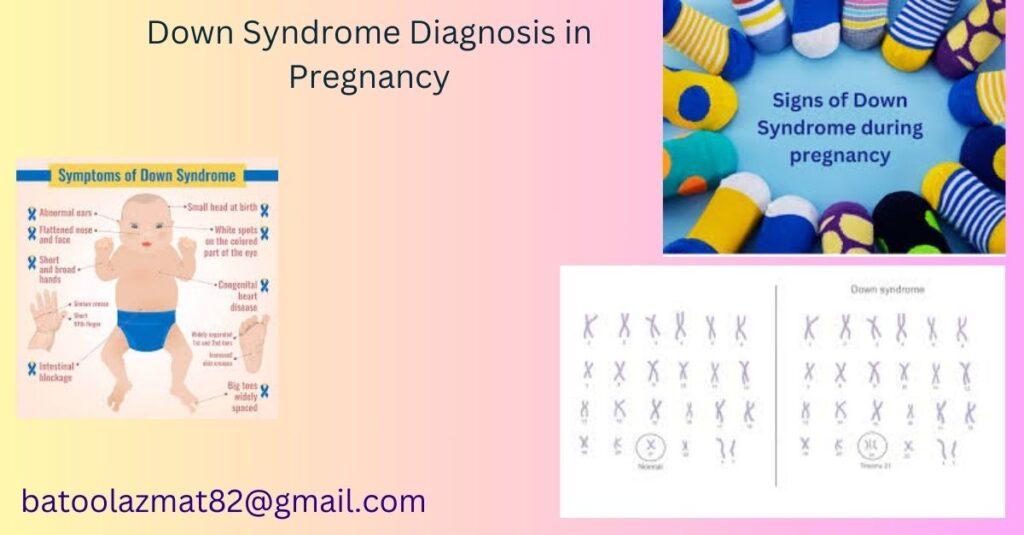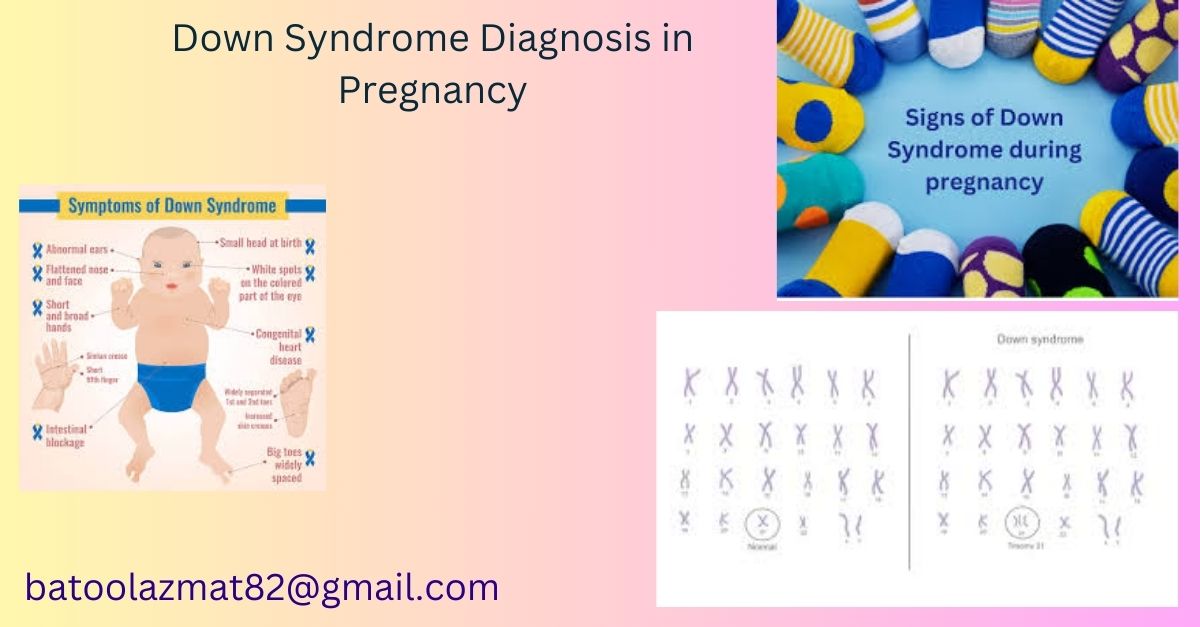Introduction Down Syndrome Diagnosis in Pregnancy
However, it also brings concerns about the health and well-being of the baby. One of the most common genetic conditions that doctors screen for during pregnancy is Down Syndrome.

Down Syndrome diagnosis in pregnancy is an essential step in prenatal care, helping parents make informed decisions and prepare for their child’s future. With advancements in medical technology, detecting Down Syndrome early has become more accurate and accessible. This article explores various screening and diagnostic tests, their accuracy, and what to expect if your baby is diagnosed with Down Syndrome.
What is Down Syndrome?
This extra genetic material affects physical and cognitive development, leading to mild to moderate intellectual disabilities and distinctive physical features. While Down Syndrome is a lifelong condition, early intervention, therapy, and support can significantly improve the quality of life for individuals with the condition.
Why is Down Syndrome Screening Important During Pregnancy?
Prenatal screening for Down Syndrome is crucial because:
- It helps parents prepare emotionally, medically, and financially.
- It enables early medical intervention if needed.
- It provides the option to make informed choices about pregnancy management.
- It assists in connecting parents with support groups and resources.
Types of Down Syndrome Tests During Pregnancy
There are two main types of tests for Down Syndrome diagnosis in pregnancy: screening tests and diagnostic tests.

1. Screening Tests for Down Syndrome Down Syndrome Diagnosis in Pregnancy
Screening tests estimate the risk of Down Syndrome but do not provide a definitive diagnosis. These tests are non-invasive and usually performed in the first or second trimester.
First-Trimester Screening (Between 10-14 Weeks) Down Syndrome Diagnosis in Pregnancy
This screening includes:
- Blood Test (Maternal Serum Screening): Measures levels of certain pregnancy-related proteins (hCG and PAPP-A) to assess the risk of chromosomal abnormalities.
- Nuchal Translucency (NT) Scan: An ultrasound that measures the fluid-filled space at the back of the baby’s neck. Increased thickness may indicate Down Syndrome.

Non-Invasive Prenatal Testing (NIPT) (After 10 Weeks) Down Syndrome Diagnosis in Pregnancy
- Analyzes fetal DNA in the mother’s blood.
- Highly accurate (over 99% detection rate) for Down Syndrome.
- Safe and widely recommended for high-risk pregnancies.

Quad Screen (Second Trimester, 15-20 Weeks) Down Syndrome Diagnosis in Pregnancy
- Measures four substances in the mother’s blood: AFP, hCG, Estriol, and Inhibin-A.
- Estimates the probability of Down Syndrome and other chromosomal conditions.
2. Diagnostic Tests for Down Syndrome Down Syndrome Diagnosis in Pregnancy
If a screening test suggests a high risk, doctors may recommend diagnostic tests, which provide a definite diagnosis. These tests involve analyzing fetal cells but carry a slight risk of miscarriage.

Chorionic Villus Sampling (CVS) (10-13 Weeks)
- A small sample of placental tissue is taken via a thin tube through the cervix or a needle in the abdomen.
- Provides nearly 100% accurate results.
- Slight risk of miscarriage (~0.5-1%).
Amniocentesis (15-20 Weeks) Down Syndrome Diagnosis in Pregnancy
- A sample of amniotic fluid is extracted using a thin needle inserted into the uterus.
- Almost 100% accurate in detecting Down Syndrome.
- Carries a 0.1-0.3% risk of miscarriage.
What Happens If Your Baby is Diagnosed with Down Syndrome?
If a diagnosis confirms Down Syndrome, parents may feel overwhelmed. However, there are several steps to take:
- Consult with Specialists: Genetic counselors, pediatricians, and support groups can provide valuable information.
- Learn About Early Intervention: Speech, physical, and occupational therapy can improve developmental outcomes.
- Connect with Support Networks: Many organizations offer guidance and community support, such as the National Down Syndrome Society (NDSS).
- Consider Medical Care Options: Some babies may have associated health conditions requiring medical attention, such as heart defects.

FAQs About Down Syndrome Diagnosis in Pregnancy
1. Can Down Syndrome be detected in the first trimester?
Yes, screening tests like NIPT and NT scan can detect Down Syndrome as early as 10 weeks.
2. Is NIPT 100% accurate for Down Syndrome?
NIPT has a high accuracy rate of over 99%, but a diagnostic test like amniocentesis or CVS is needed for confirmation.
3. What are the risks of diagnostic tests like CVS and amniocentesis?
Both tests carry a slight risk of miscarriage, ranging from 0.1% to 1%, depending on the procedure.
4. Should I get a Down Syndrome test during pregnancy?
Screening is optional, but it can help parents prepare for medical needs and emotional readiness.
5. Can Down Syndrome be prevented?
There is no way to prevent Down Syndrome, as it occurs due to a random genetic event. However, the likelihood increases with maternal age, particularly over 35.
Conclusion
Down Syndrome diagnosis in pregnancy has advanced significantly, offering parents early insights through screening and diagnostic tests. While receiving a diagnosis may feel overwhelming, access to medical care, early intervention, and strong support networks can help parents navigate the journey.
If you’re pregnant and considering Down Syndrome screening, consult with your doctor to choose the best approach for your needs.
